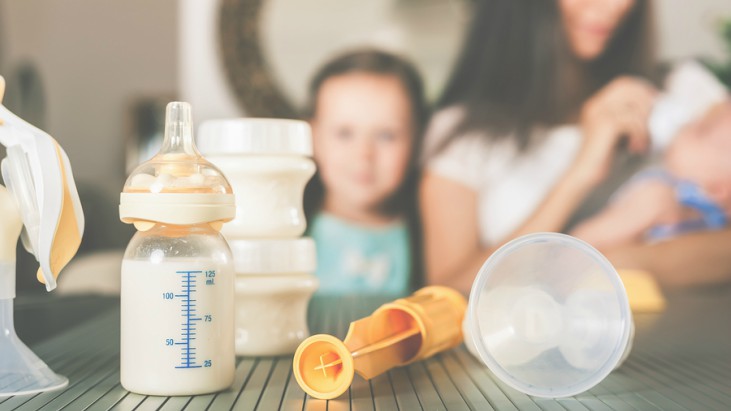A New Tax on Baby Formula Plus Extended Paid Maternity Leave
- Parents Only

By Hayley Dean, ellaslist
The recent calls from Canberra to consider a new tax on baby formula has certainly got our attention.
Perhaps, ironically, on a day when our deputy Prime Minister announced his affair with an employee which led to creating a baby, Canberra has received a proposal to add GST to baby formula and remove it from breast pumps. They've also proposed an extended paid maternity leave and want to offer money incentives to low income mothers to study and train as breastfeeding educators (or peer counsellors).
Why I hear you ask? Because research now shows that fewer than one in ten Australian children are breastfed as recommended.
The Formula Behind This
The proposal was written by ANU associate professor Dr Julie Smith who has indicated that her aim is to reduce the use of breastmilk substitutes.
Dr Smith research has found that many Aussie women are simply too time poor to be able to breastfeed their child as recommended. She notes that many mums are forced to return to work too soon for economic reasons, which have an impact on the duration of time they are able to breastfeed for. Many Aussie work places are yet to offer comfortable options for mums wanting to pump, hence the recommendation to increase paid maternity leave.
Dr Smith also believes that formula companies supplying breastmilk substitutes for children over 12 months of age are preying on vulnerable mothers; "With rising sales of milk formula products in Australia driven influentially by brand extension techniques such as toddler milk marketing, it is unsurprising to see neither breastfeeding exclusivity nor duration have improved since around 1980 in Australia," Dr Smith said.
What's On The Table?
Under the proposal, GST concessions for formula products marketed for children older than 12 months would immediately be removed. For babies under 12 months, exemptions would be phased out gradually and eventually only remain exempt in clinical settings.
There seems to be both positives and negatives to this approach. Obviously, there are many women who are simply unable to breastfeed for medical reasons and it does seem unfair that they would in effect, be hit in the back pocket for something out of their control. On the other hand, the loss of tax revenue for not having a GST on these products would amount to many millions of dollars that could be spent on improving hospitals and education programs to support mothers.
Will It Work?
The submission observed that trials in the UK showed cash and financial incentives made an important difference to whether women continued breastfeeding. But would it have the same effect here in Australia?
Personally, this reminds me of that viral video that did the rounds a few years ago, the one that seemed to put all the different types of mums up against each other but determined we are all the same in wanting what's best for ourselves and our children. Ironically, this campaign was created by a formula company…....
As always, let us know your thoughts in the comments or on Facebook!
Reviews


